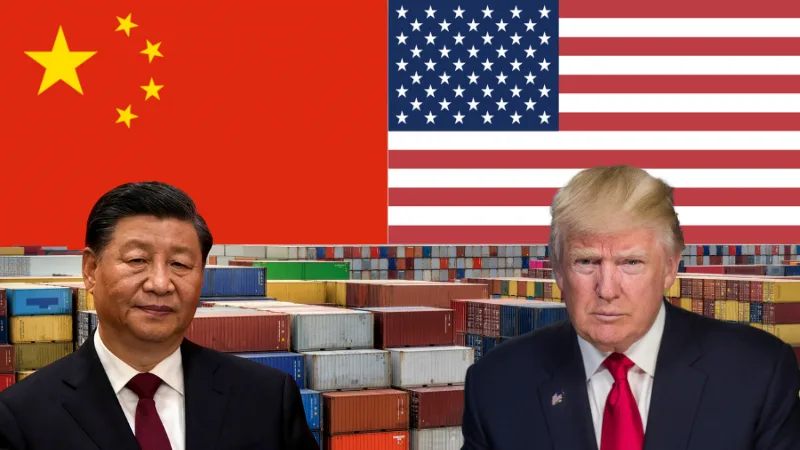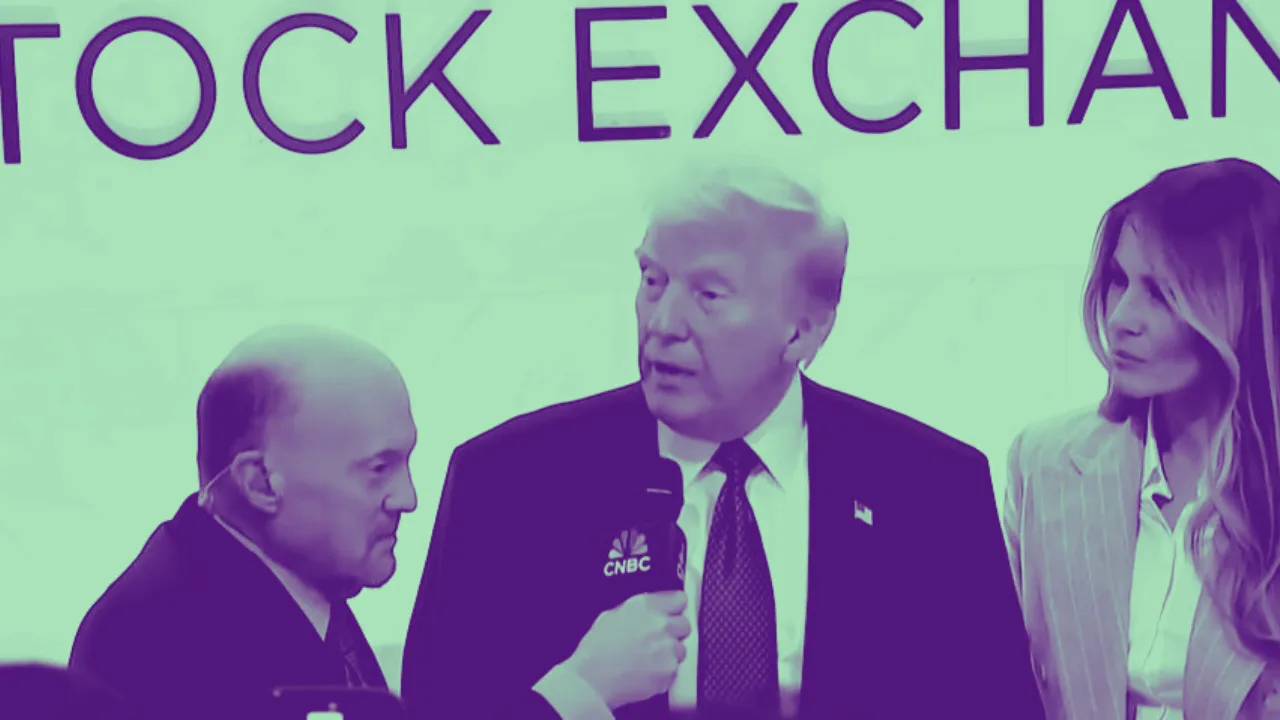Everyone thinks the U.S.-China tariff war will eventually simmer down. Wall Street, corporate America, and even Washington bureaucrats have quietly priced in the idea that some kind of deal is inevitable. But what if it isn’t? What if the tariffs stay fully in place — permanently?
If so, the global economy could fracture into rival trading blocs, U.S. consumers could face even higher costs, and companies that know how to survive — or even profit — in a deglobalized world would rise to the top.
Smart investors aren’t betting on wishful thinking. They’re positioning now for a world where the tariff fight is the new normal — not a temporary headache.
Here’s what you need to know about how a lasting U.S.-China tariff war would reshape markets — and the 10 stocks best positioned to win.
How a Permanent U.S.-China Tariff War Would Change the Game
If tariffs between the U.S. and China stay locked in for years, the consequences would be massive:
- Higher prices on imported goods would become baked into the economy, driving inflation higher.
- Supply chains would permanently shift toward other countries like Vietnam, Mexico, and India.
- Domestic manufacturing would boom in select industries — but at higher costs.
- Commodity prices could spike, especially in rare earths, metals, and agriculture.
- Corporate profits in multinationals reliant on China could erode.
- National security investing — focusing on defense, reshoring, and tech independence — would go mainstream.
This wouldn’t be a replay of the 2018-2019 trade skirmishes. It would be a full-blown economic reordering.
Investors who adapt early could beat the market by a wide margin.
10 Stocks to Buy If U.S.-China Tariffs Stick Around
If the U.S.-China tariff fight becomes permanent, here are the 10 stocks best positioned to outperform — and why:
1. Lockheed Martin (LMT)
Why: Defense spending would surge as geopolitical tensions escalate. Lockheed is the premier U.S. defense contractor, supplying fighter jets, missile systems, and next-gen warfare tech.
Bonus: Strong dividend history and a moat that China cannot replicate.
2. Nucor Corporation (NUE)
Why: As tariffs raise the cost of imported steel, U.S. producers like Nucor stand to win big. Nucor is America’s largest and most efficient steelmaker, with a reputation for resilience.
Bonus: Direct beneficiary of “Made in America” industrial policy.
3. Archer-Daniels-Midland (ADM)
Why: Tariffs on Chinese agricultural products would shift global trade flows. ADM, a key player in grain trading and food processing, would profit from rerouted agricultural demand.
Bonus: Rising global food prices would boost margins.
4. Texas Instruments (TXN)
Why: Semiconductor supply chains are decoupling from China. Texas Instruments focuses on analog chips, which are critical for U.S. manufacturing, aerospace, and automotive — industries all seeking to “reshore” operations.
Bonus: Dividend aristocrat with a fortress balance sheet.
5. Caterpillar (CAT)
Why: As the U.S. moves to rebuild domestic infrastructure — and countries diversify supply chains away from China — demand for heavy machinery like Caterpillar’s would skyrocket.
Bonus: Exposure to global construction markets outside China, including Latin America and Southeast Asia.
6. Northrop Grumman (NOC)
Why: Another key defense player that specializes in autonomous systems, cybersecurity, and space technologies — all critical in a long-term economic and strategic conflict with China.
Bonus: Massive U.S. government contracts and long-term visibility.
7. Albemarle Corporation (ALB)
Why: Albemarle is one of the world’s largest producers of lithium — a metal essential for EVs and energy storage. With China’s dominance in battery materials, Western nations will desperately need alternative supplies.
Bonus: Positioned at the center of the global energy transition.
8. Union Pacific (UNP)
Why: As companies “reshore” production, U.S. domestic transportation demand will surge. Union Pacific, one of the largest freight railroads, would be vital to moving goods across America.
Bonus: Hard asset business with pricing power in an inflationary environment.
9. Raytheon Technologies (RTX)
Why: Specializes in advanced aerospace and defense tech. A prolonged cold war with China will mean more spending on missile systems, surveillance tech, and radar — Raytheon’s core strengths.
Bonus: Critical to maintaining U.S. military and aerospace edge.
10. Deere & Co. (DE)
Why: As global agricultural trade shifts and food security becomes paramount, farmers will invest heavily in advanced machinery. Deere’s leadership in agricultural technology positions it to benefit.
Bonus: Increasing global push for food independence favors Deere’s next-gen farming tech.
What Would Get Hit the Hardest
Not all companies will survive a never-ending tariff war intact.
Sectors likely to suffer:
- Big Tech with deep China exposure (think Apple, Tesla, Nvidia)
- Retailers reliant on cheap Chinese imports (like Walmart and Dollar Tree)
- Luxury brands that count on wealthy Chinese consumers
- Manufacturers still heavily tied to Chinese supply chains
If you’re heavily invested in these areas, it might be time to rethink.
Key Trends Investors Should Watch
If tariffs stay:
- Regionalization replaces globalization: Trade will pivot to smaller regional partnerships, not one big global market.
- National champions will rise: Governments will pick and back “winner companies” in strategic industries.
- Commodity wars will intensify: Nations will hoard resources like lithium, rare earths, copper, and grains.
- Consumer prices stay high: Inflation will settle at a permanently elevated level.
This isn’t about riding out a storm — it’s about adapting to a new era.
Stop Waiting for Normal
Every week, Wall Street analysts whisper that “an agreement is around the corner.”
Every month, political pundits predict “talks are progressing.”
But the longer the tariffs stay, the more permanent they become.
If you’re still investing like this is temporary, you’re setting yourself up to get burned.
Smart investors aren’t waiting for normal to return.
They’re building portfolios for the world as it is — not as they hope it might be.
If the U.S.-China tariff war never ends, the winners will be the companies that serve America’s security, food supply, energy needs, and manufacturing strength.





